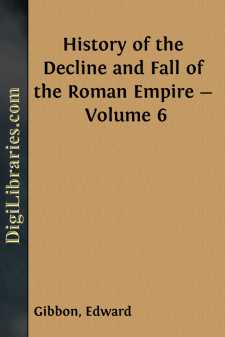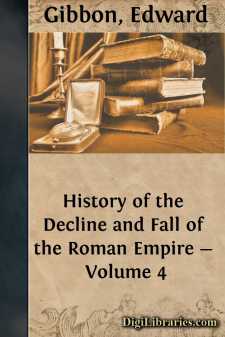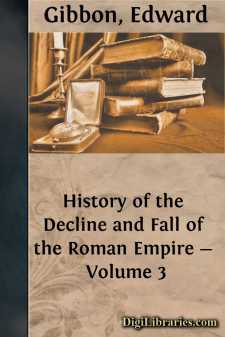Categories
- Antiques & Collectibles 13
- Architecture 36
- Art 48
- Bibles 22
- Biography & Autobiography 813
- Body, Mind & Spirit 142
- Business & Economics 28
- Children's Books 17
- Children's Fiction 14
- Computers 4
- Cooking 94
- Crafts & Hobbies 4
- Drama 346
- Education 46
- Family & Relationships 57
- Fiction 11829
- Games 19
- Gardening 17
- Health & Fitness 34
- History 1377
- House & Home 1
- Humor 147
- Juvenile Fiction 1873
- Juvenile Nonfiction 202
- Language Arts & Disciplines 88
- Law 16
- Literary Collections 686
- Literary Criticism 179
- Mathematics 13
- Medical 41
- Music 40
- Nature 179
- Non-Classifiable 1768
- Performing Arts 7
- Periodicals 1453
- Philosophy 64
- Photography 2
- Poetry 896
- Political Science 203
- Psychology 42
- Reference 154
- Religion 513
- Science 126
- Self-Help 84
- Social Science 81
- Sports & Recreation 34
- Study Aids 3
- Technology & Engineering 59
- Transportation 23
- Travel 463
- True Crime 29
History of the Decline and Fall of the Roman Empire - Volume 2
by: Edward Gibbon
Categories:
Description:
Excerpt
Chapter XVI—Conduct Towards The Christians, From Nero To Constantine.—Part I.
The Conduct Of The Roman Government Towards The Christians,
From The Reign Of Nero To That Of Constantine.
If we seriously consider the purity of the Christian religion, the sanctity of its moral precepts, and the innocent as well as austere lives of the greater number of those who during the first ages embraced the faith of the gospel, we should naturally suppose, that so benevolent a doctrine would have been received with due reverence, even by the unbelieving world; that the learned and the polite, however they may deride the miracles, would have esteemed the virtues, of the new sect; and that the magistrates, instead of persecuting, would have protected an order of men who yielded the most passive obedience to the laws, though they declined the active cares of war and government. If, on the other hand, we recollect the universal toleration of Polytheism, as it was invariably maintained by the faith of the people, the incredulity of philosophers, and the policy of the Roman senate and emperors, we are at a loss to discover what new offence the Christians had committed, what new provocation could exasperate the mild indifference of antiquity, and what new motives could urge the Roman princes, who beheld without concern a thousand forms of religion subsisting in peace under their gentle sway, to inflict a severe punishment on any part of their subjects, who had chosen for themselves a singular but an inoffensive mode of faith and worship.
The religious policy of the ancient world seems to have assumed a more stern and intolerant character, to oppose the progress of Christianity. About fourscore years after the death of Christ, his innocent disciples were punished with death by the sentence of a proconsul of the most amiable and philosophic character, and according to the laws of an emperor distinguished by the wisdom and justice of his general administration. The apologies which were repeatedly addressed to the successors of Trajan are filled with the most pathetic complaints, that the Christians, who obeyed the dictates, and solicited the liberty, of conscience, were alone, among all the subjects of the Roman empire, excluded from the common benefits of their auspicious government. The deaths of a few eminent martyrs have been recorded with care; and from the time that Christianity was invested with the supreme power, the governors of the church have been no less diligently employed in displaying the cruelty, than in imitating the conduct, of their Pagan adversaries. To separate (if it be possible) a few authentic as well as interesting facts from an undigested mass of fiction and error, and to relate, in a clear and rational manner, the causes, the extent, the duration, and the most important circumstances of the persecutions to which the first Christians were exposed, is the design of the present chapter. *
The sectaries of a persecuted religion, depressed by fear animated with resentment, and perhaps heated by enthusiasm, are seldom in a proper temper of mind calmly to investigate, or candidly to appreciate, the motives of their enemies, which often escape the impartial and discerning view even of those who are placed at a secure distance from the flames of persecution....








